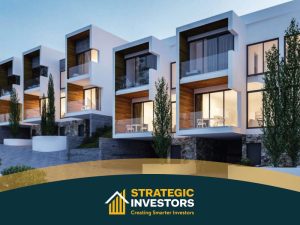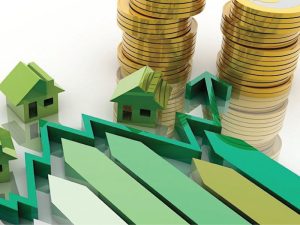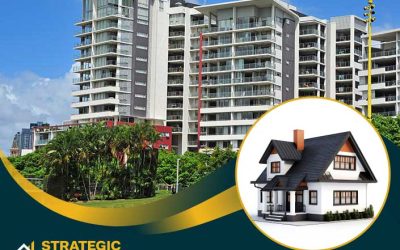
What type of residential property should you buy?
For the majority of first-time investors, residential property is an optimum approach.
But what kind of residential properties?
As you know, land creates capital growth, while buildings languish or depreciate. Houses have the most land content. However, that doesn’t mean apartments and townhouses are not also suitable investments. While they may not have as much land, you still have a share in the common area. And many townhouses have their own courtyards. Although townhouses and apartments have less land content than houses, there are many other benefits in investing in apartments or townhouses.
Advantages of apartments or townhouses
 One of the advantages of this type of investment is the rental yield. Generally, you will receive a higher rental yield through owning an apartment or townhouse, but a house and land package. You may choose to sacrifice the improved capital growth achieved through a house investment for improved rental income, especially if you have a cash flow problem.
One of the advantages of this type of investment is the rental yield. Generally, you will receive a higher rental yield through owning an apartment or townhouse, but a house and land package. You may choose to sacrifice the improved capital growth achieved through a house investment for improved rental income, especially if you have a cash flow problem.
A further benefit to buying a townhouse or apartment is the depreciation potential. Usually, apartments or townhouses built after 1987 can claim a depreciation allowance on the construction cost of the property. This non-cash deduction provides the investor with greater cash flow.
What should I consider in rental values?
 Once you have determined the locality and the type of property you’re after, you need to decide on a price range to be looking at. Whether it be high, low or mid-price properties, your budget will have a significant factor in determining the price range for your investment property. If you can afford a wider variety of property ranges, you should consider that in any market, there are always more people looking at the lower end of the price market than the top end.
Once you have determined the locality and the type of property you’re after, you need to decide on a price range to be looking at. Whether it be high, low or mid-price properties, your budget will have a significant factor in determining the price range for your investment property. If you can afford a wider variety of property ranges, you should consider that in any market, there are always more people looking at the lower end of the price market than the top end.
How important is Property Supply and Demand
 When considering the right investment property for you, you should always consider supply and demand. In an area with a limited pool, houses, apartments or townhouses all make suitable investments.
When considering the right investment property for you, you should always consider supply and demand. In an area with a limited pool, houses, apartments or townhouses all make suitable investments.
Where there is more property supply, for example, an area that is zoned for high-density living, consider investing in a property with more land such as a house or even a townhouse.
This means the zoning ruling means the market could have flooded with apartments for sale or rent, thus reducing your potential rental income and the value of your property. Houses, townhouses, and apartments all have investment benefits and associated costs. You must choose the most suitable property for your investment strategy and the location where you wish never to impact what type of property you choose significantly.
Should I purchase the lowest value property?
 While there may be lots of low priced properties in your target locality, there will be a reason why they are at the lower end of the price range. The property may be on the main road or next door to an industrial site.
While there may be lots of low priced properties in your target locality, there will be a reason why they are at the lower end of the price range. The property may be on the main road or next door to an industrial site.
The lowest price properties are less attractive investments, which has resulted in them being the lowest price.
Steer clear of these properties. It is better to look at properties in the mid-price range for that suburb or locality as you should have chosen areas where there is a high demand, and it continues to grow. Pieces of middle-range properties in that area may be higher than the city middle price overall. But with an improved rental return, it should be a better area to invest in for the longer term.
Final Note
There are many factors in considering what type of residential property you should purchase as an investment. The key message in this article is to do your research, take account of a range of different factors, know any potential issues. It is always recommended that you engage someone with experience and insight into the market to ensure you get the optimum result.













